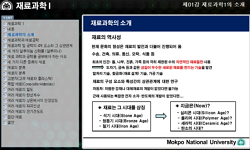Bending and tensile properties of 2D cross-ply C/C composites with processing heat treatment temperature (HTT) are evaluated. C/C composites used are made from two types of PAN based T700 and M40 carbon fibers with phenolic resin as carbon matrix prec...
http://chineseinput.net/에서 pinyin(병음)방식으로 중국어를 변환할 수 있습니다.
변환된 중국어를 복사하여 사용하시면 됩니다.
- 中文 을 입력하시려면 zhongwen을 입력하시고 space를누르시면됩니다.
- 北京 을 입력하시려면 beijing을 입력하시고 space를 누르시면 됩니다.
https://www.riss.kr/link?id=A100386687
- 저자
- 발행기관
- 학술지명
- 권호사항
-
발행연도
2005
-
작성언어
English
- 주제어
-
등재정보
SCIE,SCOPUS,KCI등재
-
자료형태
학술저널
-
수록면
234-242(9쪽)
- 제공처
-
0
상세조회 -
0
다운로드
부가정보
다국어 초록 (Multilingual Abstract)
Bending and tensile properties of 2D cross-ply C/C composites with processing heat treatment temperature (HTT) are evaluated. C/C composites used are made from two types of PAN based T700 and M40 carbon fibers with phenolic resin as carbon matrix precursor. Both the types of composites are heat treated at different temperatures (ranging from 750 to 2800℃) and characterized for bending and tensile properties. It is observed that, real density and open porosity increases with HTT, however, bulk density does show remarkable change. The real density and open porosity are higher in case T-700 carbon fiber composites at 2800℃, even though the density of M40 carbon fiber is higher. Bending strength is considerably greater than tensile strength through out the processing HTT due to the different mode of fracture. The bending and tensile strength decreases in both composites on 1000℃ which attributed to decrease in bulk density, thereafter with increase in HTT, bending and tensile strength increases. The maximum strength is in T700 fiber based composites at HTT 1500℃ and in M40 fiber based composites at HTT 2500℃. After attending the maximum value of strength in both types of composite at deflection HTT, after that strength decreases continuously. Decrease in strength is due to the degradation of fiber properties and in-situ fiber damages in the composite. The maximum carbon fiber strength realization in C/C composites is possible at a temperature that is same of fiber HTT. It has been found first time that the bending strength more or less 1.55 times higher in T700 fiber composites and in M40 fiber composites bending strength is 1.2 times higher than that of tensile strength of C/C composites.
동일학술지(권/호) 다른 논문
-
Surface Characterization of the Activated Carbon Fibers After Plasma Polymerization of Allylamine
- 한국탄소학회
- Na Lu
- 2005
- SCIE,SCOPUS,KCI등재
-
Carbon Medicine in Ancient China
- 한국탄소학회
- Hongyan Yang
- 2005
- SCIE,SCOPUS,KCI등재
-
Carbon Materials for Electrochemical Capacitors
- 한국탄소학회
- Soo-Jin Park
- 2005
- SCIE,SCOPUS,KCI등재
-
Water Vapor Adsorption and Hydrogen Peroxide Decomposition on Date Pit Carbonization Products
- 한국탄소학회
- A.M. Youssef
- 2005
- SCIE,SCOPUS,KCI등재







 스콜라
스콜라






